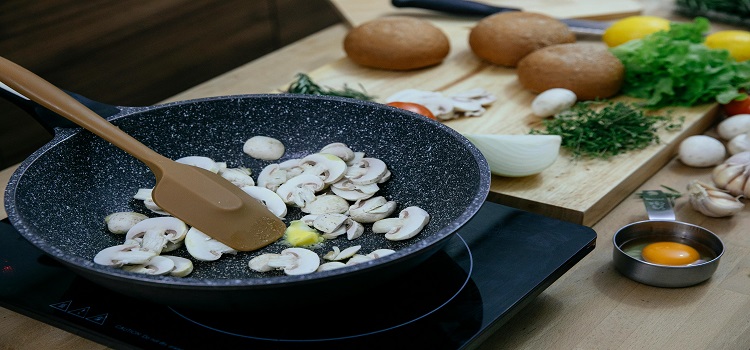As an Amazon Associate I earn from qualifying purchases.
Perfect Hard-Boiled Eggs on Your Gas Stove: Tips and Tricks
Introduction: Hard-boiled eggs are nutritious ingredient, perfect for salads, sandwiches, or enjoyed on their own as a protein-packed snack. Boiling eggs on a gas stove is a straightforward process, but achieving the perfect texture can require some finesse. In this guide, we’ll explore the steps to hard boil eggs on a gas stove, along with tips, timing recommendations, and answers to common questions to help you master this essential cooking skill.

Uses of Hard-Boiled Eggs: Hard-boiled eggs are a staple ingredient in various dishes, including:
- Salads: Add sliced or chopped hard-boiled eggs to green salads, potato salads, or pasta salads for extra protein and flavor.
- Sandwiches: Use sliced hard-boiled eggs in sandwiches, wraps, or breakfast burritos for a satisfying and portable meal.
- Appetizers: Serve deviled eggs or egg salad on toast points or crackers as a delicious appetizer or party snack.
Benefits of Hard-Boiled Eggs:
1. Protein-Rich:Hard-boiled eggs are an excellent source of high-quality protein, essential for muscle repair and growth.
2. Portable:Hard-boiled eggs are convenient for on-the-go snacking or adding protein to packed lunches or picnics.
3. Versatile:Hard-boiled eggs can be used in a wide range of recipes, from salads and sandwiches to soups and casseroles.
4. Nutrient-Rich:Eggs are packed with essential nutrients such as vitamins D, B12, and choline, as well as minerals like iron and zinc.
How to Hard Boil Eggs on a Gas Stove:
1. Prepare Eggs:Start with fresh eggs at room temperature. Gently place them in a single layer in a saucepan or pot.
2. Add Water:Cover the eggs with cold water, ensuring they are submerged by at least one inch.
3. Boil Water:Place the pot on a burner over medium-high heat until the water reaches a rolling boil.
4. Simmer: Once boiling, reduce the heat to low and let the eggs simmer gently for 8 to 12 minutes, depending on desired doneness.
5. Cool and Peel:Remove the pot from the heat and transfer the eggs to a bowl of ice water to cool rapidly. Once cooled, peel the eggs under cold running water for easier peeling.
FAQs (Frequently Asked Questions):
1. How do I know when the eggs are done boiling?
· Eggs are typically done boiling when the whites are set, and the yolks reach the desired level of firmness. For hard-boiled eggs, aim for fully cooked yolks without any runny or soft spots.
2. What causes eggs to crack while boiling?
· Rapid temperature changes or overcrowding in the pot can cause eggs to crack while boiling. Use room temperature eggs and avoid placing too many eggs in the pot at once.
3. Can I add salt or vinegar to the water when boiling eggs?
· Adding salt or vinegar to the boiling water may help prevent eggs from cracking and make them easier to peel, but it is not necessary for successful boiling.
4. How long can I store hard-boiled eggs in the refrigerator?
· Hard-boiled eggs can be stored in the refrigerator for up to one week in their shells. Once peeled, they should be consumed within a few days for the best quality.
5. Can I reheat hard-boiled eggs?
· Hard-boiled eggs can be reheated gently in hot water or sliced and added to dishes such as soups or stir-fries, but they are best enjoyed fresh.
6. How can I prevent the green ring from forming around the yolk?
· The green ring is caused by overcooking or high heat. To prevent it, avoid boiling eggs for too long and immediately cool them after cooking to stop the cooking process.
7. Can I boil eggs in advance for meal prep?
· Yes, hard-boiled eggs are excellent for meal prep and can be boiled in advance and stored in the refrigerator for quick and easy meals throughout the week.
8. Do older eggs peel easier than fresh eggs?
· Some people find that older eggs are easier to peel than fresh eggs due to changes in the pH of the egg white over time. However, proper cooling and peeling techniques can also contribute to easier peeling.
9. Are hard-boiled eggs safe to eat if the shell cracks during boiling?
· If an egg cracks during boiling, it is still safe to eat as long as it is cooked thoroughly and cooled properly. However, cracked eggs may be more prone to contamination, so use caution.
10. Can I add eggs directly to boiling water?
· It’s best to start with cold water when boiling eggs to prevent cracking. Adding eggs to boiling water may increase the risk of cracking and uneven cooking.
Conclusion: Mastering the art of hard-boiling eggs on a gas stove is a valuable cooking skill that opens up a world of culinary possibilities. By following the steps outlined in this guide, along with tips and answers to common questions, you can get perfectly cooked hard-boiled eggs every time. Whether enjoyed on their own as a healthy snack or made into your favorite recipes, hard-boiled eggs are nutritious addition to any meal.
As an Amazon Associate I earn from qualifying purchases.
Leave a Reply